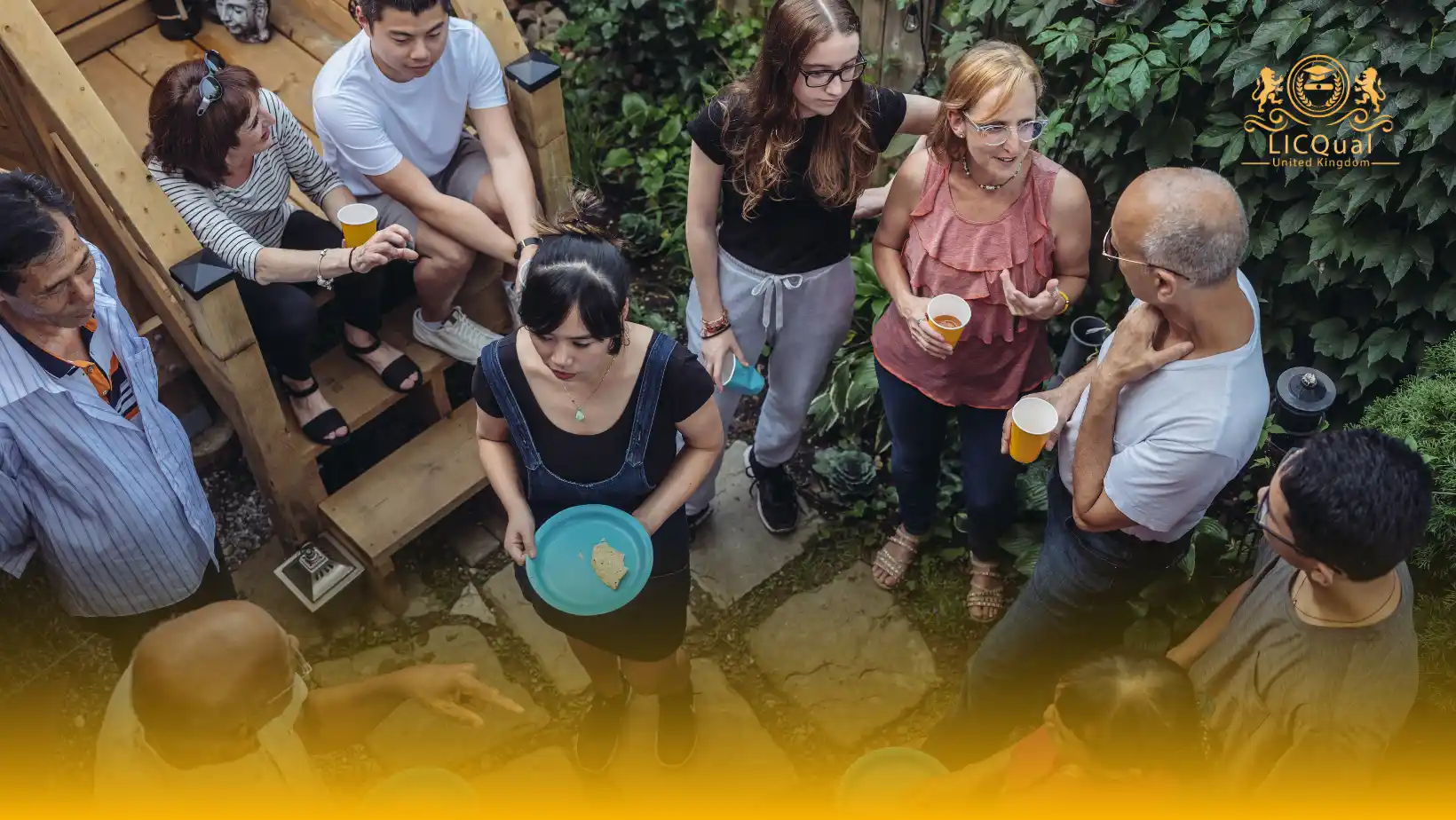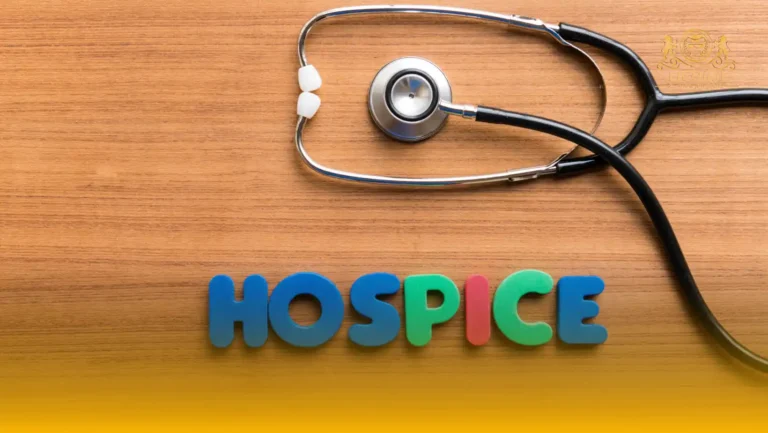The LICQual Level 7 Postgraduate Diploma in Community Nutrition (PgD Community Nutrition) is a specialized qualification designed for professionals who aspire to lead, influence, and contribute to the improvement of nutrition and health at community and population levels. This programme provides learners with the advanced knowledge and skills required to design, implement, and evaluate nutrition initiatives that address public health concerns and promote sustainable dietary behaviors.
This qualification is not intended for fresh candidates. Instead, it is tailored for experienced professionals who wish to expand their career opportunities, enhance their expertise, and strengthen their Continuing Professional Development (CPD). Learners will develop a deep understanding of community-based nutrition interventions, food policy, behavioural change strategies, and the wider determinants of health. The course also emphasises evidence-based practice, enabling learners to critically assess nutritional challenges and propose effective solutions that improve long-term health outcomes.
Centres delivering this diploma must demonstrate a strong commitment to quality education. They are required to employ competent and qualified staff with relevant expertise and ensure access to essential learning materials, research tools, and supportive resources. A robust academic environment and effective learner support are crucial to achieving excellence and ensuring success in this field.
By completing this programme, learners will be well-prepared to take on leadership roles in nutrition, healthcare, public health, and community development, making a meaningful impact on health promotion and disease prevention at local, national, and global levels.
Course Overview
Qualification Title
LICQual Level 7 Postgraduate Diploma in Community Nutrition (PgD Community Nutrition)
Total Units
6
Total Credits
120
GLH
600
Qualification #
LICQ2201100
Qualification Specification
To enroll in the LICQual Level 7 Postgraduate Diploma in Community Nutrition (PgD Community Nutrition), applicants must meet the following criteria:
|
Qualification# |
Unit Title |
Credits |
GLH |
|---|---|---|---|
|
LICQ2201100-1 |
Principles and Foundations of Community Nutrition |
20 |
100 |
|
LICQ2201100-2 |
Nutritional Assessment and Health Surveillance in Communities |
20 |
100 |
|
LICQ2201100-3 |
Food Security, Sustainability, and Nutrition Interventions |
20 |
100 |
|
LICQ2201100-4 |
Behaviour Change Communication and Community Engagement |
20 |
100 |
|
LICQ2201100-5 |
Public Health Policy and Programme Development in Nutrition |
20 |
100 |
|
LICQ2201100-6 |
Professional Practice, Ethics, and Continuing Professional Development (CPD) in Community Nutrition |
20 |
100 |
By the end of this course, learners will be able to:
Unit 1: Principles and Foundations of Community Nutrition
By the end of this unit, learners will be able to:
- Critically evaluate the theoretical foundations of community nutrition.
- Analyse the impact of cultural, social, and economic factors on dietary behaviour.
- Apply community nutrition frameworks to address health inequalities.
Unit 2: Nutritional Assessment and Health Surveillance in Communities
By the end of this unit, learners will be able to:
- Conduct advanced community-based nutritional assessments and dietary surveys.
- Interpret epidemiological data to identify nutrition-related health challenges.
- Design and apply health surveillance methods to monitor community nutrition outcomes.
Unit 3: Food Security, Sustainability, and Nutrition Interventions
By the end of this unit, learners will be able to:
- Assess issues of food security and their impact on community health.
- Develop sustainable nutrition interventions to address local and global challenges.
- Critically evaluate strategies for promoting equitable access to nutritious food.
Unit 4: Behaviour Change Communication and Community Engagement
By the end of this unit, learners will be able to:
- Apply behaviour change models to influence dietary practices within communities.
- Design and implement effective communication strategies for nutrition education.
- Engage communities through participatory approaches to achieve sustainable health outcomes.
Unit 5: Public Health Policy and Programme Development in Nutrition
By the end of this unit, learners will be able to:
- Evaluate the role of nutrition evidence in shaping public health policy.
- Plan, implement, and critically assess community-based nutrition programmes.
- Recommend evidence-based policy interventions to address public health nutrition priorities.
Unit 6: Professional Practice, Ethics, and Continuing Professional Development (CPD) in Community Nutrition
By the end of this unit, learners will be able to:
- Demonstrate professional and ethical awareness in community nutrition practice.
- Apply reflective practice to improve professional performance and learner outcomes.
- Show commitment to lifelong learning and CPD within the field of community nutrition.
This course is ideal for professionals and graduates who want to specialise in improving public health through nutrition and community-based interventions. The LICQual Level 7 Postgraduate Diploma in Community Nutrition (PgD Community Nutrition) is perfect for individuals aiming to advance their knowledge in community nutrition, public health strategies, and population health management, while gaining a globally recognised Level 7 qualification.
Public Health Nutrition Professionals
- Nutritionists working in public health and community settings
- Professionals managing community nutrition programmes
- Individuals designing diet-based health interventions
- Practitioners monitoring nutrition outcomes in populations
- Staff aiming to influence public health policy
- Professionals developing community nutrition strategies
Healthcare and Allied Health Professionals
- Nurses, dietitians, and clinical nutritionists
- Healthcare staff involved in patient and community nutrition
- Practitioners integrating evidence-based dietary strategies
- Clinicians aiming to strengthen research and analytical skills
- Professionals applying nutrition knowledge in healthcare settings
- Staff seeking career progression in community health nutrition
Researchers and Academics
- Postgraduate students in nutrition, public health, or epidemiology
- Professionals involved in nutrition and community health research
- Individuals seeking to publish or contribute to academic studies
- Researchers applying community-level data to nutrition interventions
- Academics aiming for a Level 7 recognised qualification
- Professionals preparing for doctoral-level study
Policy Makers and Government Professionals
- Individuals designing nutrition-related public health policies
- Professionals evaluating national or regional nutrition programmes
- Staff monitoring population health and nutrition trends
- Policy advisors integrating evidence from community nutrition studies
- Professionals developing health promotion initiatives
- Government employees seeking advanced qualification in nutrition
Career Changers into Public Health Nutrition
- Graduates from life sciences, health, or related disciplines
- Professionals transitioning into community nutrition roles
- Individuals seeking structured pathways into public health careers
- Career changers aiming to specialise in population nutrition
- Learners pursuing internationally recognised Level 7 diploma
- Professionals seeking long-term career opportunities in healthcare
Data Analysts in Community Health Nutrition
- Professionals analysing community nutrition data
- Individuals interpreting population health trends
- Analysts supporting research in public health nutrition
- Practitioners applying biostatistics in community nutrition studies
- Professionals developing reports and recommendations based on evidence
- Staff seeking practical application of community nutrition knowledge
Professionals Seeking Academic and Career Progression
- Professionals enhancing research, analytical, and leadership skills
- Individuals targeting senior roles in public health nutrition
- Practitioners pursuing leadership positions in nutrition and community health
- Professionals requiring globally recognised Level 7 qualification
- Learners committed to advancing population health through nutrition
Centres delivering the LICQual Level 7 Postgraduate Diploma in Community Nutrition must meet high-quality standards to ensure effective training delivery, assessment, and learner success. To be approved, centres are required to demonstrate the following:
- Qualified and Experienced Staff:
Tutors, trainers, and assessors must hold relevant academic and professional qualifications in nutrition, dietetics, public health, or community health. They should also have substantial industry or academic experience and maintain up-to-date knowledge through Continuing Professional Development (CPD). - Access to Learning Resources:
Centres must provide learners with access to current textbooks, research journals, community nutrition case studies, and online learning platforms. Resources should also include digital tools for nutrition assessment and programme design. - Facilities and Infrastructure:
Centres must offer suitable classrooms, seminar spaces, and online learning environments. Facilities should support both theoretical learning and applied practice in community nutrition. - Assessment and Quality Assurance:
Robust systems for assessment, internal verification, and quality assurance must be in place. Assessors should be trained to evaluate postgraduate-level knowledge and professional skills accurately. - Learner Support Services:
Centres must provide academic guidance, research support, and career development services. Learners studying through blended or distance learning should also have access to responsive online support. - Commitment to Inclusivity and Ethics:
Centres must uphold ethical standards, inclusivity, and fairness in all teaching, learning, and assessment activities to ensure equal opportunities for every learner.
By fulfilling these requirements, centres will deliver a structured and high-quality learning experience that equips learners with the skills and confidence to make a lasting impact in community nutrition.
Assessment and Verification
All units within this qualification are subject to internal assessment by the approved centre and external verification by LICQual. The qualification follows a criterion-referenced assessment approach, ensuring that learners meet all specified learning outcomes.
To achieve a ‘Pass’ in any unit, learners must provide valid, sufficient, and authentic evidence demonstrating their attainment of all learning outcomes and compliance with the prescribed assessment criteria. The Assessor is responsible for evaluating the evidence and determining whether the learner has successfully met the required standards.
Assessors must maintain a clear and comprehensive audit trail, documenting the basis for their assessment decisions to ensure transparency, consistency, and compliance with quality assurance requirements.







